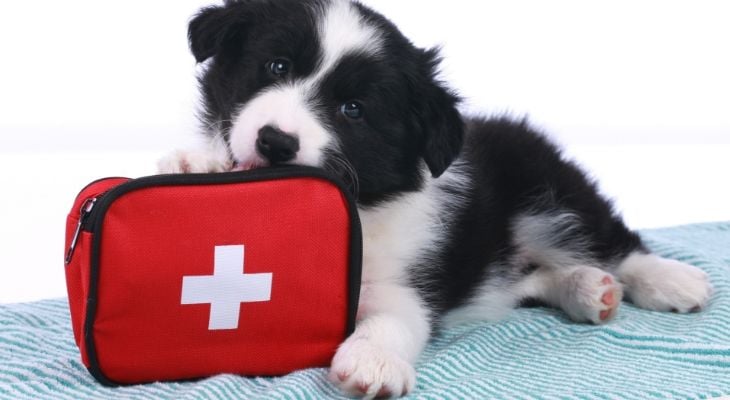
Never leave dangerous objects like pins, needles, or fish hooks within reach. Keep poisonous products and materials far from your pet's reach as you would with a child.
Of course, before an emergency ever arises, it's a good idea to learn all you can about first aid techniques and pet health care. Never leave dangerous objects like pins, needles, or fish hooks within reach. Keep poisonous products and materials far from your pet's reach as you would with a child. Be well aware of your pet's normal behavior, so you can recognize what's not normal. Remember that the objective is to relieve suffering . . . perhaps even to save a life. Emergency first aid is most effective when rendered quickly, but calmly.
A sick or injured animal is often in a frightened state, so if emergency first aid is necessary protect yourself (even if it's your own pet); cats can be handled with gloves or wrapped in a blanket - a dog can be muzzled. If there's any question of seriousness, keep our phone number handy with other emergency phone numbers.
Family pets (and all animals) risk all kinds of poisoning from all kinds of places. Snakes can poison; some plants can poison; and hundreds of poisonous materials are used around the home by people every day - things like pesticides, weed killers, lawn sprays, acids, fertilizers, paints . . . the list is endless.
Here's what you can do if your pet is poisoned:
* Keep your pet warm and quiet
* Try to determine what the poison was, when it was ingested, and the amount swallowed
* Immediately call us and/or your nearest poison control center
When you bring your pet to see us, bring the container (or the label) with you. Most of the time poisoning is accidental. Keep poisonous materials out of reach, know what your pet is doing at all times, and keep emergency telephone numbers handy.

